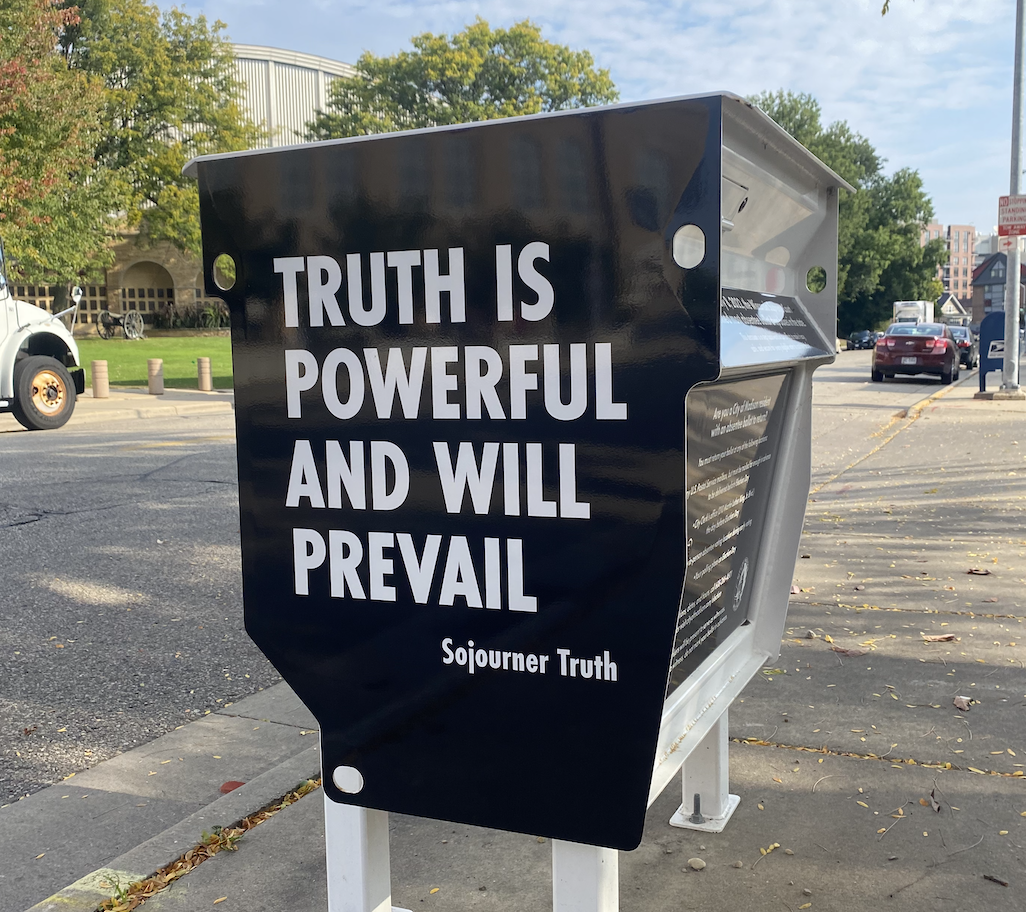?Power corrupts absolutely.?
When speaker Wendy McElroy chopped off the first part of that clich?d Lord Acton quote, she would have done well to hold the term above her head like an anarchist?s halo for the entire lecture. Unfortunately, anything absolute becomes corrupted in an environment of reality and Ms. McElroy?s premise soon fell apart, albeit with some pertinent points.
Ms. McElroy was brought by the Center for Study of Liberal Democracy to provide controversy to the ever-plodding idea of voting.
That idea? Voting is immoral.
Now, while one might immediately scoff, shout or hurl something at the woman given the sometimes reactionary nature of this campus, the idea should not be discounted. Certainly, the nearly 75 people packed into the tight Law School lecture room had open enough minds to be swayed.
Now, while Ms. McElroy may have come into this with the banner headline of immorality, her initial arguments were based on rationality ? your vote doesn?t matter, and you?re unlikely to be the deciding vote in an election.
Of course, Ms. McElroy soon prefaced her claim with the caveat, ?I?m talking about the vote that gives your personal sanction to the person you pull the lever for.? And that?s the rub. For Ms. McElroy, voting is the individual giving his or her power to a politician to control his or her life. It allows some person (usually referenced in this vein as George W. Bush) to operate control over your life. In her mind, voting in a democracy is not freedom; it is voluntary servitude. Since voting gives them consent to do this, the only reasonable thing to do is to not consent.
If you vote, the politicians have won.
I have some ground to make, given limited space, so I?ll make this as concise as possible.
You?re not absolutely wrong, but you?re wrong nevertheless.
If voluntary servitude is against human nature, as Ms. McElroy claims, then let me categorize human nature as incessant confusion and self-destruction. In the earliest days of man, perhaps individual anarchism was bliss. However, under today?s system, we live in a network of highly organized social networks, contacts and state societies. What she terms ?voluntary servitude,? I call ?trust.?
You put your trust in the state because it filters out complexities of life you either cannot manage on your own or see no need to. Why do people obey unjust laws? Because ? for the majority, in most cases ? it?d be a whole lot more problematic and chaotic without the system there. I may recognize that a war we?re involved in is unjust, but I don?t attempt to overthrow the government because the state simplifies my life in ways that more directly affect me. Morals matter, but practicality is king. It may not be pure human nature, but nothing really has been the same since the Agricultural Revolution, now has it?
Ah, but it?d be too easy to practically assault anarchism. This is about personal philosophy ? it?s about morality. At least, that?s what she says. But questioning proves problematic. A student next to me raised his hand many times and finally had his say: ?So, what would be your ideal situation??
Ms. McElroy responds with the idea of all government existing on the local level, a ?Constitutional Republic.? Of course, the notion of a despotic ruler goes out the window. How could we lower ourselves to that again?
So, we have no executive, but what happens if we?re attacked, the boy asks.
Here she flares up, stating it?s just an ?Orwellian notion, fear of the other? that prompts this idea that we?ll be attacked. If we left Iraq, and kept our nose other people?s business, we wouldn?t be attacked!
Strike one. Tell that to Poland, Sicily and a range of other regions that tried that policy. And you?re a historian?
At some point, another student asks how voting can have an impermissibly coercive effect if the act has been deemed irrelevant and useless as she previously stated?
Backtracking. She isn?t actually convinced by the practical argument she just gave; she says she follows more moral principles.
Strike two. Why use logic you don?t wholly believe in?
Then comes the defining blow. Someone asks her who she would vote for.
?In my whole little anti-war heart, I hope Barack Obama gets in.?
For a woman who doesn?t believe in voting, she sure seems pretty invested in who ends up in that seat of immoral ?coercive power.?
Her reasoning? She just thinks it would be ?so great? to see a black man in that office.
And she?s out.
While Ms. McElroy?s logic ultimately fails, there is one point to be taken from her lecture: Voting is a moral action. For those who shuffle to the ballot boxes hoping their crush on Obama is still hot by the time they pick up their pen are turning a ?moral obligation? into an immoral farce. The argument that voting is coercive in itself is true, but as professor Harry Brighouse made clear after the lecture, coercion is sometimes moral, especially in the case of the state.
Furthermore, voting is not consent to run rampant. In the case of an incumbent, perhaps that is the case ? after all, you?re voting for the status quo. But when placed in an election, such as the one we have now, there is a choice between diverging paths. Not voting is a choice, but it?s one that casts all other paths into a void. If you believe there is no candidate who matches your moral concerns, perhaps it is the right choice. Of course, one must consider that one day the choice between two evils may be one between suffering and total oblivion.
Of course, if a Hitler-esque candidate led to that conclusion, Ms. McElroy did have a solution: political assassination.
Let?s be honest, nothing is so absolute.
Jason Smathers ([email protected]) is a senior majoring in history and journalism.







